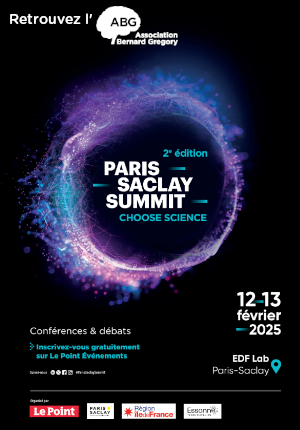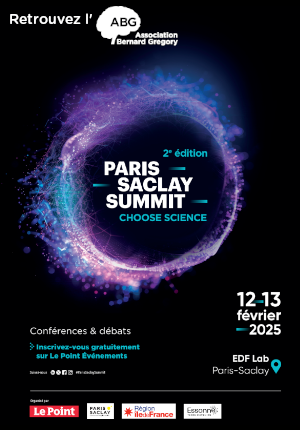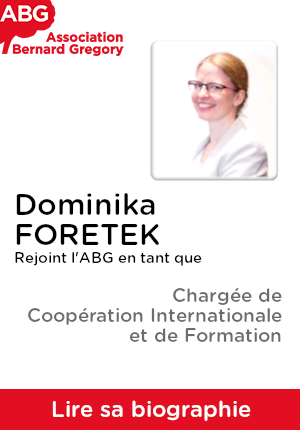PhD thesis: Detection of nanoplastics with ultraviolet nanophotonics
| ABG-128186 | Thesis topic | |
| 2025-01-28 | Public funding alone (i.e. government, region, European, international organization research grant) |
- Engineering sciences
- Chemistry
- Physics
Topic description
The intensive use of plastic materials has given rise to an alarming pollution linked to the presence of micro- and nanoplastics. The latter have dimensions of less than 1 µm, making them an even greater threat to biodiversity and human health. While current analysis methods are limited to particles larger than 5 µm, the detection of nanoplastics remains a major challenge.
This PhD project aims to break new ground in the quantitative detection of nanoplastics by exploiting time-resolved ultraviolet (UV) autofluorescence. Plastics emit intrinsic autofluorescence when illuminated in the UV, providing superior sensitivity to current Raman and infrared spectroscopies. The central objective is to improve detection sensitivity thanks to this autofluorescence property, targeting particles as small as 30 nm in diameter. A further original feature is the ability to differentiate between types of plastic by exploiting their autofluorescence lifetime.
Developing this approach requires the development of suitable characterization methods, as well as a deeper understanding of the UV photophysics of nanoplastics. The project aims to fill this gap by exploiting joint developments in spectroscopy, nanophotonics and the synthesis of calibrated plastic nanoparticles. The project builds on our recent progress and preliminary results.
This novel UV approach promises enhanced sensitivity, the ability to detect nanoscale particles, and a direct, label-free application ideal for in situ scenarios. The project will open up new perspectives for the detection of nanoplastics, helping to better understand and quantify this invisible pollution.
Starting date
Funding category
Funding further details
Presentation of host institution and host laboratory
The Institut Fresnel is a research state laboratory based in Marseille / France, devoted to research and higher education with affiliation to both CNRS and Aix Marseille University. Institut Fresnel is seeking to recruit talented, enthusiastic young scientists who are highly motivated to boost their research career in the areas of nanosciences, biosensing, and nano/biotechnologies.
Jerome Wenger’s group has acquired a wide expertise in the nanoscale control of light fields in plasmonic nanostructures and its application to enhance fluorescence spectroscopy applications.
Web Link www.jeromewenger.com
Website :
PhD title
Country where you obtained your PhD
Institution awarding doctoral degree
Graduate school
Candidate's profile
To apply for a PhD fellowship, candidates must hold or be in the final stages of completing an internationally-recognized Master-equivalent degree in physics, chemistry or engineering. Experience in experimental and/or theoretical research on nano-optics and/or biophotonics will be highly appreciated, but is not mandatory. No restrictions of citizenship apply to the PhD fellowship.
Soft skills: Strong motivation for optics, curiosity for nanosciences, English for science, autonomy, analytical and critical thinking, writing skills, presentation skills
Vous avez déjà un compte ?
Nouvel utilisateur ?
Get ABG’s monthly newsletters including news, job offers, grants & fellowships and a selection of relevant events…
Discover our members
 MabDesign
MabDesign  Nokia Bell Labs France
Nokia Bell Labs France  ADEME
ADEME  Ifremer
Ifremer  Institut de Radioprotection et de Sureté Nucléaire - IRSN - Siège
Institut de Radioprotection et de Sureté Nucléaire - IRSN - Siège  CASDEN
CASDEN  Laboratoire National de Métrologie et d'Essais - LNE
Laboratoire National de Métrologie et d'Essais - LNE  ONERA - The French Aerospace Lab
ONERA - The French Aerospace Lab  PhDOOC
PhDOOC  Tecknowmetrix
Tecknowmetrix  Institut Sup'biotech de Paris
Institut Sup'biotech de Paris  ANRT
ANRT  MabDesign
MabDesign  Groupe AFNOR - Association française de normalisation
Groupe AFNOR - Association française de normalisation  SUEZ
SUEZ  TotalEnergies
TotalEnergies  Aérocentre, Pôle d'excellence régional
Aérocentre, Pôle d'excellence régional  CESI
CESI  Généthon
Généthon







